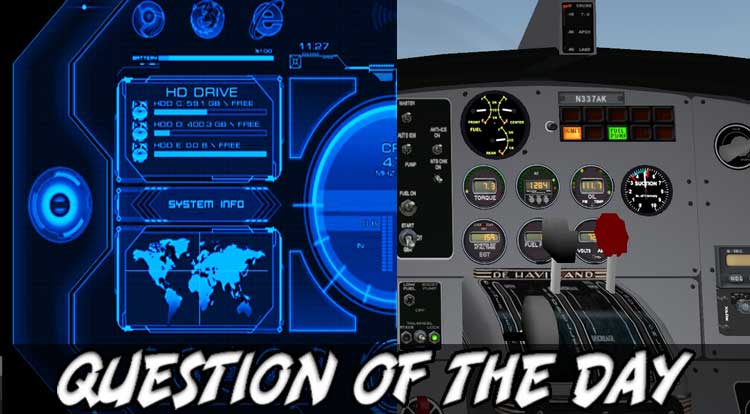My recent long weekend included an unexpected joy: Remastered episodes of ‘Star Trek: The Next Generation’, episodes that I remember watching in college, during my shifts at the campus television station. We ran commercial bumpers twice an hour and monitored the signal, so there was time to watch other television during the job. (And for this, I got college credits!) I’ve always been a fan of the flat-panel LCARS touch-screens used in those episodes, to the point where I downloaded an emulator to make a previous laptop look like one, and to this day, I wish that I could get one installed in my van. Of course, the idea that a power failure would mean a *complete loss of control* is problematic, which is why I expect that a Tesla will never be my ride, The fact that each terminal seems to be wired with 50 million volts would make matters dicey as well, which leads us to today’s futuristic query…
The MS-QOTD (pronounced, as always, “misquoted”) might liken it to the difference of opinion between iPhone and Android users, in a way, asking: Which tech style wins the Star Trek/Star Wars battle for you: TNG-style touchscreens or the levers, doodads and dials of the Millenium Falcon?




6 Comments
Well, touch screens and computers feel more authentically futuristic, and more immersive to me.
But, at the same time, there’s something about the tactile feel of levers and steering controls that is more aesthetically pleasing and feels more like watching someone control a ship.
So I guess my answer is both, depending on the context.
Touch screens feel like how they would work in the future, levers and analog controls like they are WW2 planes. Not really comparable.
There is no dramatic catharsis in watching someone touch a screen. While it might be how our 2019 understanding of future tech might work, it can be pretty yawn-inducing as entertainment.
Even if they do entertaining beep boops and occasionally explode?
Turning a dial is somehow more riveting than a touchscreen?
Minority Report says no. Same here.
And… catharsis? Really?
The energy of Harrison Ford, Peter Mayhew, Billy Dee Williams, et al. frantically fidgeting with the levers and dials arrayed around the cockpit of the Millennium Falcon is definitely more supportive of active body language and emotive acting than Levar Burton, Michael Dorn, Wil Wheaton & co. running their fingers over & poking at a sheet of glass.
And yes, “catharsis,” in that tense moments created by the plot can find release through energetic action on the screen.
Oh, and I’ll see your “Minority Report” and raise you a “Doctor Who.”